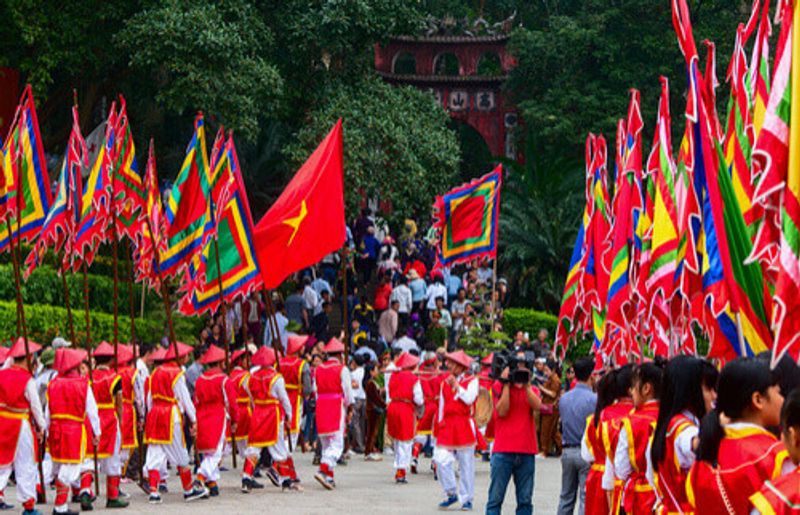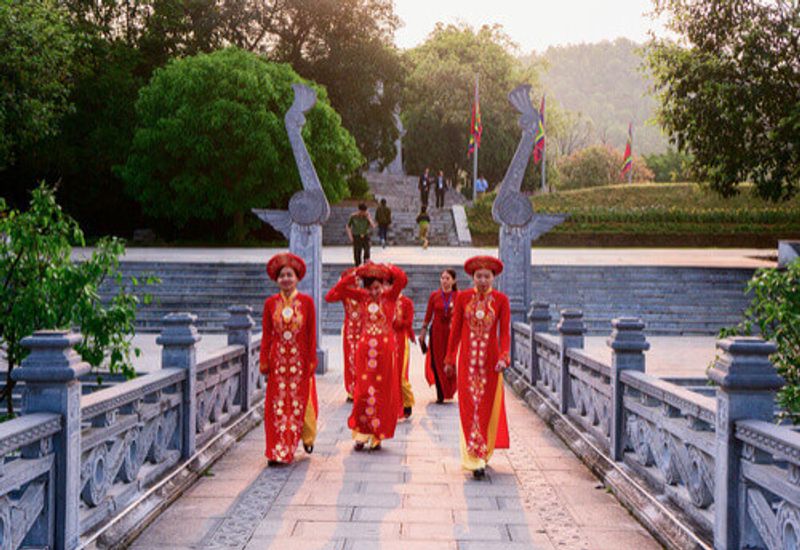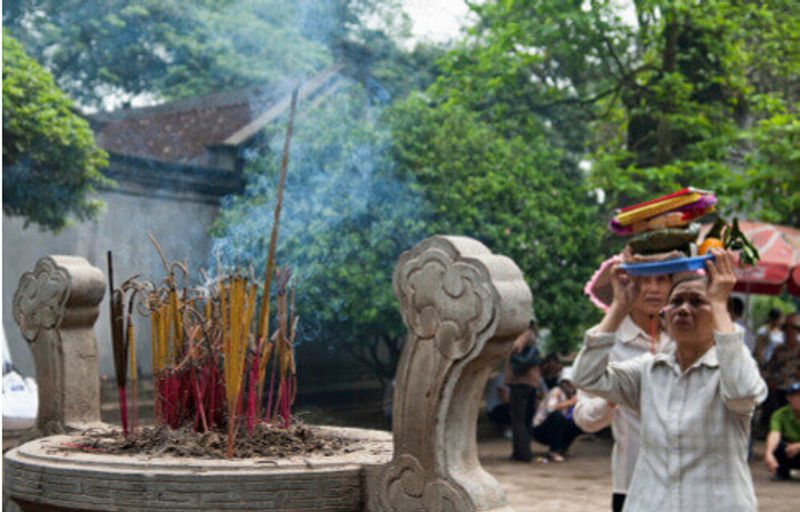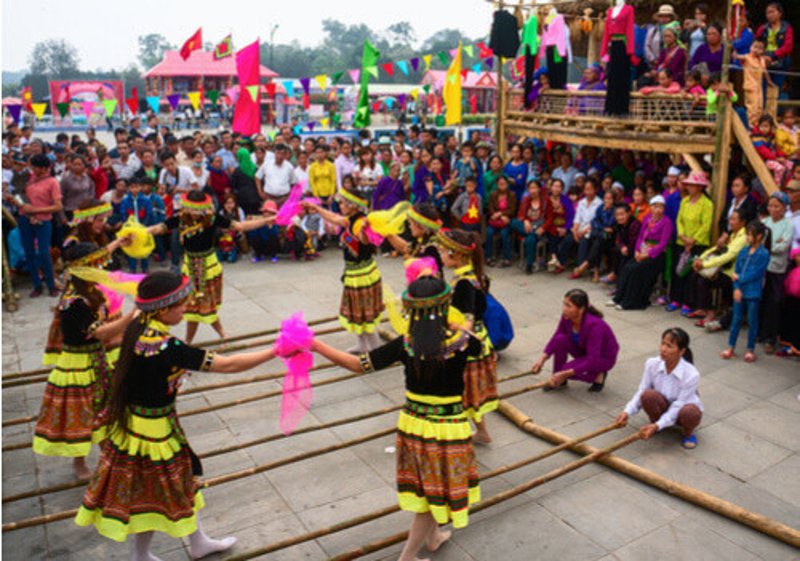One of Vietnam’s biggest celebrations is an homage to its ancient past
The Hùng Kings Festival (also known as the Death Anniversary of the Hùng Kings) is one of Vietnam’s largest annual celebrations. From the 8th to the 11th of the third lunar month each year, with the main day of celebration on April 7 this year. It's a public holiday so people from all corners of the country head to the northern Phu Tho province to commemorate the Hùng Kings and their part in establishing the modern nation of Vietnam.
Hùng Kings Festival is a treasured time in the Vietnamese calendar, as it teaches the young about their country, their roots and nurtures a cherished connection between past and present.
History
The reign of the Hùng Kings is considered one of the most significant in Vietnamese history. Ancient Vietnamese texts cite the first Hùng King, Hung Vuong, as having created his kingdom in 2879 BC, but current archeological evidence places its beginnings between 1000 and 500 BC. Hung Vuong and the 17 Hùng Kings that came after him are credited with establishing the basis of Vietnamese civilisation. During their reign, the kings are said to have initiated methods of farming, hunting and horticulture, and facilitated a sense of patriotism in their subjects through the preservation of traditions.
Known as Van Lang (meaning Land of Tattooed Men), their state is believed to have originated in northern Phu Tho province, but may have stretched to the Red River Delta and even to parts of southern China. Although the 18th king was overthrown early in the 3rd century BC, the fruits of their rule are still evident in modern-day Vietnam and celebrated during the Hùng Kings Festival.
What to expect
During the festival, events are held across Vietnam’s 1,400 Hùng King temples, but the main ceremony takes place at the Phu Tho temple complex north of Hanoi, where millions make the journey every year.
On the morning of April 2, children are dressed in vibrant outfits and loaded with offerings before heading to the foot of Nghia Linh Mountain with their families for the procession. People from dozens of local villages, in conjunction with government representatives, ascend the mountain together, stopping at each place of worship until they reach the highest temple. When they arrive, a bronze drum performance signals the beginning of prayers and an incense offering ritual, performed by elders, pilgrims and state leaders.
There are many food offerings, too; fruit and traditional dishes like banh giay (crushed sticky rice pudding) and banh chung (sticky rice cake) are prepared with love by locals and presented as sacrifices to the Hùng Kings.
Traditions
In addition to the formal ceremonies, there are many traditional activities associated with Hùng Kings Festival. Local people perform folk music and games such as bamboo swinging contests, rice cooking competitions, human chess, wrestling and dragon dancing add to the jovial atmosphere of the celebration.
Travellers can join in the festivities and learn about the fascinating culture of Vietnam, or simply observe the strong connection Vietnamese people have to their history.



